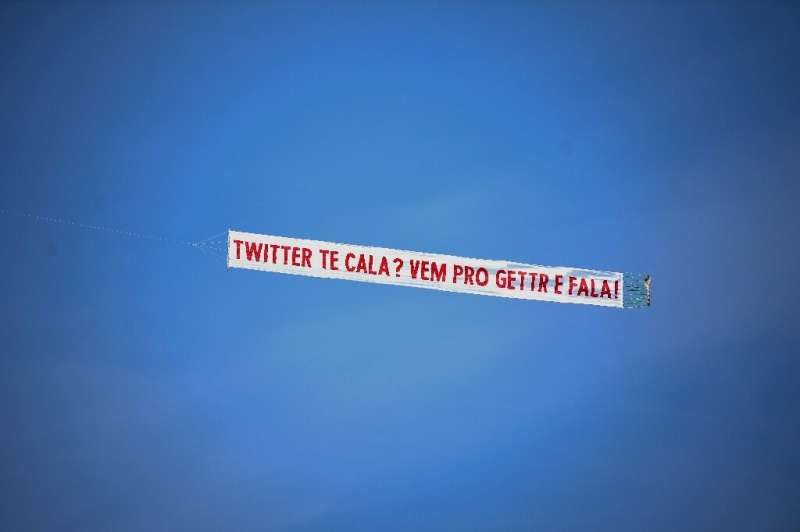A small plane carries a banner that reads "Twitter shuts you up? Come to GETTR and talk", in promotion of the US social media company targeted to conservative voters founded by Jason Miller, a former Donal Trump aide and spokesman, during a demonstration in support of Brazilian President Jair Bolsonaro at Copacabana beach in Rio de Janeiro, Brazil, on September 7, 2021.
Eight leading social networks signed an agreement Tuesday to fight disinformation during Brazil's October presidential elections, though far-right President Jair Bolsonaro's new favorite, Telegram, was notably absent.
Twitter, TikTok, Facebook, WhatsApp, Google, Instagram, YouTube and Kwai all signed the deal with Brazil's Superior Electoral Tribunal (TSE) pledging to work with electoral authorities and their users to root out deliberately false information.
"This is an important moment in Brazilian life and the life of our democracy. We are all devoted to preserving an environment of free debate, within the minimal limits of civility," said TSE president Luis Roberto Barroso at the signing ceremony.
"We are here to push fake news, disinformation and conspiracy theories to the margins of history."
The TSE tried to contact Telegram to join the accord, but did not receive a response, the court told AFP.
Bolsonaro, who faces numerous accusations of using fake news as a political weapon, has recently turned to Telegram as YouTube, Twitter and Facebook have acted to stop him from spreading disinformation on their platforms.
However, Telegram faces scrutiny from Brazilian authorities over accusations it has failed to cooperate with efforts to stop the spread of harmful disinformation.
Barroso said recently the platform may need to be suspended before the elections.
The October vote is expected to pit Bolsonaro against leftist ex-president Luiz Inacio Lula da Silva, who currently has a large lead in the polls.
Bolsonaro relied heavily on social networks during the 2018 election campaign, which was rife with fake news, and continues to use them to fire up his hardline base.
© 2022 AFP
























